In a perfect world, we would never have to worry about dental emergencies. However, life is unpredictable, and dental crises can strike at the most inconvenient times. Whether it’s a sudden toothache, a knocked-out tooth, or a broken crown, knowing how to respond swiftly and effectively can make all the difference in preserving your dental health. This comprehensive guide aims to equip you with the knowledge and confidence to handle any dental emergency, ensuring the best possible outcome for your oral health.
Picture this: you’re enjoying a relaxing weekend when suddenly, a sharp pain shoots through your tooth, or perhaps your child has a mishap during a sports game and comes running to you with a knocked-out tooth. Dental emergencies can be stressful and overwhelming, especially when you’re unprepared. The pain and discomfort, combined with the urgency to find a solution, can leave you feeling helpless. However, with the right information and a calm approach, you can navigate these crises effectively.
This blog will delve into common dental emergencies, providing step-by-step guidance on what to do in each situation. We’ll also discuss preventive measures to help reduce the likelihood of these incidents occurring. By the end of this article, you’ll be well-prepared to handle dental emergencies with confidence and ease.
Common Dental Emergencies and How to Handle Them
1. Toothache
Causes and Symptoms: Toothaches can arise from various issues such as cavities, gum disease, infection, or trauma. Symptoms often include sharp, throbbing pain, swelling, and sensitivity to temperature.
Immediate Steps:
- Rinse your mouth: Use warm water to rinse your mouth and dislodge any trapped food particles.
- Floss gently: Carefully floss around the affected tooth to remove any debris.
- Apply a cold compress: Place a cold compress on the outside of your cheek to reduce swelling.
- Take pain relievers: Over-the-counter pain medications like ibuprofen can help alleviate pain.
When to See a Dentist: If the pain persists for more than a day or is severe, contact your dentist immediately. Persistent toothaches can indicate a more serious issue that requires professional treatment.
2. Knocked-Out Tooth
Causes and Symptoms: A knocked-out tooth, or avulsed tooth, often results from accidents, sports injuries, or severe impact to the mouth.
Immediate Steps:
- Handle with care: Pick up the tooth by the crown, avoiding the root to prevent damage.
- Rinse gently: Rinse the tooth with milk or saline solution, avoiding tap water as it may harm the root.
- Reinsert if possible: Try to place the tooth back into its socket gently. If that’s not possible, keep it moist in a container of milk or saliva.
- Seek immediate dental care: Time is critical; get to a dentist within 30 minutes if possible.
When to See a Dentist: Immediately. The sooner you receive professional care, the better the chances of saving the tooth.
3. Chipped or Broken Tooth
Causes and Symptoms: Teeth can chip or break due to biting down on something hard, accidents, or dental conditions that weaken the teeth.
Immediate Steps:
- Save the pieces: Collect any fragments of the broken tooth.
- Rinse your mouth: Use warm water to clean the area.
- Apply gauze: If there’s bleeding, apply gauze to the area for 10 minutes or until the bleeding stops.
- Cold compress: Use a cold compress to reduce swelling and relieve pain.
When to See a Dentist: As soon as possible. Prompt treatment can help repair the damage and prevent further complications.
4. Lost Filling or Crown
Causes and Symptoms: Fillings and crowns can become loose or fall out due to decay, eating sticky foods, or trauma.
Immediate Steps:
- Keep the crown: If a crown falls out, save it and keep it safe.
- Protect the tooth: Use dental cement (available at pharmacies) to temporarily cover the tooth.
- Avoid certain foods: Steer clear of hard or sticky foods that could cause more damage.
When to See a Dentist: Quickly. The dentist can reattach the crown or filling and protect the exposed tooth from damage or infection.
Preventive Measures
While it’s impossible to prevent all dental emergencies, you can reduce the risk by taking good care of your teeth and being mindful of potential hazards.
- Regular Dental Check-ups: Visit your dentist at least twice a year for cleanings and examinations. Early detection of issues can prevent emergencies.
- Use Mouthguards: If you play sports, use a mouthguard to protect your teeth from trauma.
- Avoid Hard Foods: Be cautious with hard candies, ice, and other hard foods that can chip or break teeth.
- Practice Good Oral Hygiene: Brush twice a day, floss daily, and use mouthwash to keep your teeth and gums healthy.
- Address Dental Issues Promptly: Don’t ignore dental problems; what starts as a minor issue can quickly escalate into an emergency if left untreated.
Conclusion
Dental emergencies can happen to anyone, at any time. Being prepared and knowing how to respond can make a significant difference in preserving your dental health and reducing pain and discomfort. By following the steps outlined in this guide, you can handle dental crises with confidence and ensure the best possible outcome.
Remember, the key to managing dental emergencies effectively is staying calm, acting quickly, and seeking professional care when necessary. Regular dental check-ups and good oral hygiene practices are your best defense against unexpected dental issues. Equip yourself with the knowledge and tools to protect your smile, and you’ll be ready to face any dental emergency that comes your way.





